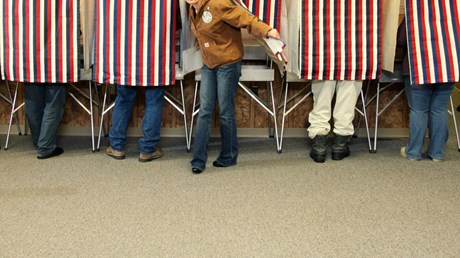Even at the ballot box, morality is not relative.

For years, I have urged Christians to take seriously their obligations as citizens, starting with exercising the right to vote. In the public square and at the ballot box, we must be more engaged, not less.
But what happens in a race where Christians are faced with two morally problematic choices? Should voters cast a ballot for the lesser of two evils? This unpredictable election cycle could go in any number of directions, and I keep getting asked this question.
For starters, unless Jesus of Nazareth is on the ballot, any election forces us to choose the lesser of evils. Across every party and platform, all have sinned and fall short of the glory of God. Still, the question is a valid one. Believing in human depravity doesn’t negate our sense of responsibility. By the standard of God’s law, every person is a liar, but that doesn’t mean we should hire an employee we know has a pattern of lying. Jesus taught that all who have lust in their hearts are adulterers, but that doesn’t mean a woman should shrug her shoulders when she learns her potential new husband is a serial philanderer.
When considering the question of choosing between the lesser of two evils, we must begin with what voting is within our system of government. In our system, citizen is an office; we too bear responsibility for the actions of the government. Just as the lordship of Christ made demands for public justice on office-holders in the New Testament (Luke 4:15), the same is true for those who rule as citizens.
The apostle Paul taught that the sword of Caesar is given by God to commend good and punish evil (Rom. 13:1-5). The Bible addresses the limits of this role, recounting those who use the sword in unjust ways and are held accountable …
Source: Christianity Today Most Read